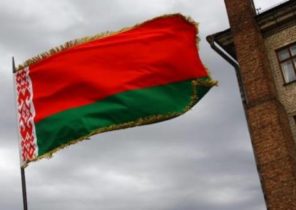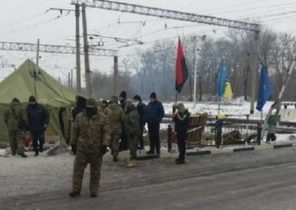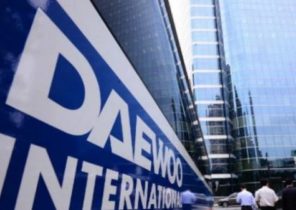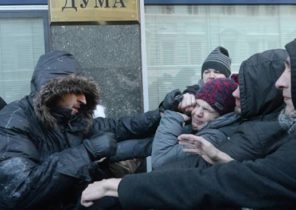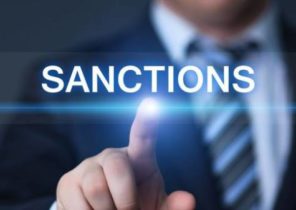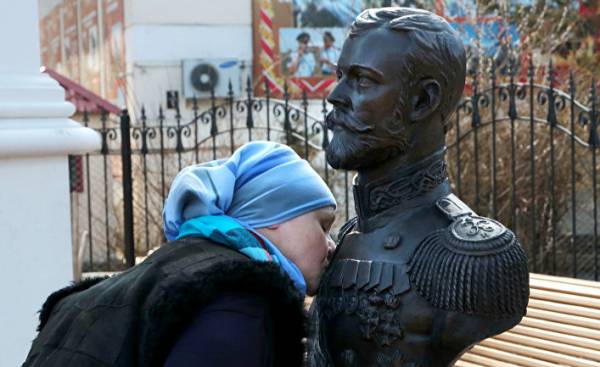
Vladimir Putin himself at the weekend did not come on the famous Sparrow hills in southwest Moscow. The celebration in honour of the annexation of the Crimean Peninsula three years ago, he left to the people. From Moscow to Novosibirsk and from Murmansk to Vladivostok on the Pacific ocean, the people danced and drank. This is not surprising. Three years after the annexation, 78 percent believe that it has benefited Russia and did not hurt, according to a survey conducted by the VTSIOM Institute. Confidence has never been so great. And 89 percent believe that the annexation benefited the Crimea. Only 13 percent say that Russia’s actions violated international law and harmed herself.
“”
At the same time, the annexation and subsequent external economic shocks (especially the sanctions of the West) have caused significant damage to the Russian economy. They were not the main reason for a two-year recession in the country. But, in any case, they precipitated a sharp decline, which occurred due to structural economic crisis and the fall in oil prices in the period from mid-2014. Even Putin’s press Secretary Dmitry Peskov recently admitted that the annexation of the Crimea forced the Russian economy. “Those are the challenges, is the price you have to pay really everything,” he told the newspaper “RBC”. “High is the price? I will say this: it Russia and not beyond her capabilities.”
At the same time, the annexation and subsequent external economic shocks (especially the sanctions of the West) have caused significant damage to the Russian economy. They were not the main reason for a two-year recession in the country. But, in any case, they precipitated a sharp decline, which occurred due to structural economic crisis and the fall in oil prices in the period from mid-2014. Even Putin’s press Secretary Dmitry Peskov recently admitted that the annexation of the Crimea forced the Russian economy. “Those are the challenges, is the price you have to pay really everything,” he told the newspaper “RBC”. “High is the price? I will say this: it Russia and not beyond her capabilities.”
As to the facts, it was estimated, available media, for three years from the Russian budget the Crimea was allocated half a trillion rubles (eight billion euros). This one and a half times the gross regional product of the Peninsula in 2015. In addition, the budget of the Crimea for 65 percent of subsidies from Moscow, which annually amount to about one billion euros. But Crimea is not the only geopolitical maneuver, which is costly for Russia.
At the same time, a quick lifting of Western sanctions are expected. Therefore, it remains in force and counter-sanctions — an embargo on agricultural products from the West. Thus, every Russian loses 4,400 rubles a year, solely because of the embargo, as shown by recent monitoring of the Russian presidential Academy of national economy. This is because the ban on the import significantly increases the price of food.
What is the situation in the Crimea?
How people live in the Crimea? Research of the newspaper “RBC” show that currently energy supply from Russia is secured, after several outages in the past. At the end of last year also opened a gas pipeline from Russia. This year will be commissioned a range of new transport message with Russia. The construction of 19-kilometer bridge between Crimea and mainland Russia, of course, will take much more time.
At the same time, entrepreneurs in the Crimea complain that the adaptation to Russian laws and tax systems are very expensive both in terms of time and financial costs, says Andrei Nazarov, Vice-President of the Association of entrepreneurs “Business Russia”. Due to the large number of government contracts, in the Crimea intensified as entrepreneurs from the mainland of Russia, becoming competitors of the local people. But Moscow took care of the influx of Russian tourists on the Peninsula. Last year their number increased by 21.2 percent to 5.57 million people. Mostly it was civil servants who were vacationing there at the expense of the state.
